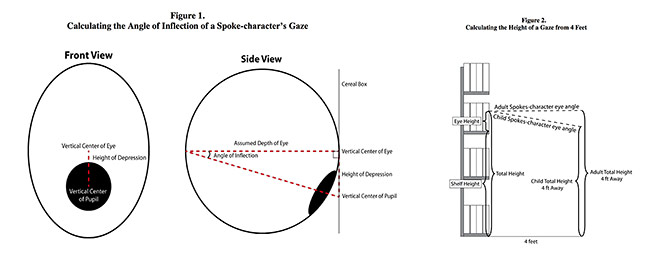
Young, sexually mature humans Homo sapiens sapiens of both sexes commonly congregate into particular but arbitrary physical locations and dance. These may be areas of traditional use, such as nightclubs, discotheques or dance-halls or areas that are temporarily commissioned for the same purpose such as at house parties or rock festivals etc.
This type of behaviour is seen in a variety of animals although there are no apparent attempts to monopolize particular areas within these locations as is often seen in species that lek.
The present studies were conducted in order to investigate this phenomenon in a commercial nightclub environment. Data revealed that more than 80% of people entering the nightclub did so without a partner and so were potentially sexually available. There was also an approx. 50% increase in the number of couples leaving the nightclub as compared to those entering it seen on each occasion this was measured, indicating that these congregations are for sexual purposes.
Within the nightclub itself more than 80% of bouts of mixed sex dancing were initiated by a male approaching a female, demonstrating that males are stimulated to approach females rather than vice versa. In consequence, females are placed in competition with each other to attract these approaches.
Various female display tactics were measured and these showed that whilst only 20% of females wore tight fitting clothing that revealed more than 40% of their flesh/50% of their breast area and danced in a sexually suggestive manner, these attracted close to half (49%) of all male approaches seen. These data reveal the effectiveness of clothing and dance displays in attracting male attention and strongly indicate that nightclubs are human display grounds, organised around females competing for the attention of males. Females with the most successful displays gain the advantage of being able to choose from amongst a range of males showing interest in them.
{ Institute of Psychological Sciences | PDF }
photo { Camilla Åkrans }
dance, relationships |
April 9th, 2014

A computer has solved the longstanding Erdős discrepancy problem. Trouble is, we have no idea what it’s talking about — because the solution, which is as long as all of Wikipedia’s pages combined, is far too voluminous for us puny humans to confirm.
A few years ago, the mathematician Steven Strogatz predicted that it wouldn’t be too much longer before computer-assisted solutions to math problems will be beyond human comprehension.
{ io9 | Continue reading }
photo { Taryn Simon }
mathematics, technology |
April 9th, 2014

If you’re like most people, you spend a great deal of your time remembering past events and planning or imagining events that may happen in the future. While these activities have their uses, they also make it terribly hard to keep track of what you have and haven’t actually seen, heard, or done. Distinguishing between memories of real experiences and memories of imagined or dreamt experiences is called reality monitoring and it’s something we do (or struggle to do) all of the time. […]
Perhaps you’ve left the house and headed to work, only to wonder en route if you’d locked the door. Even if you thought you did, it can be hard to tell whether you remember actually doing it or just thinking about doing it. […]
The study’s authors also found greater activation in the anterior medial prefrontal cortex when they compared reality monitoring for actions participants performed with those they only imagined performing.
{ Garden of the Mind | Continue reading }
memory, neurosciences |
April 8th, 2014

When you really focus your attention on something, you’re said to be “in the present moment.” But a new piece of research suggests that the “present moment” is actually […] a sort of composite—a product mostly of what we’re seeing now, but also influenced by what we’ve been seeing for the previous 15 seconds or so. They call this ephemeral boundary the “continuity field.”
{ Quartz | Continue reading }
photo { Richard Sandler }
eyes, neurosciences |
April 7th, 2014
 Nine-month-old boy accused of planning murder
Nine-month-old boy accused of planning murder
China’s corporate debt has hit record levels
Growing up poor is bad for your DNA
A team of researcher have identified a new way of treating cancer.
While antibiotics have saved countless lives, they’re an assault on our microbiome.
Results suggest that a perceiver can accurately gauge the real intelligence of men, but not women, by viewing their faces in photographs More: Want people to think you’re smarter? Smile more.
Which couples who meet on social networking sites are most likely to marry?
Women do not apply to ‘male-sounding’ job postings
Reasoning is generally seen as a means to improve knowledge and make better decisions. However, much evidence shows that reasoning often leads to epistemic distortions and poor decisions. [PDF]
There are clear differences between how our brains respond to genuine and fake laughter
Does the unconscious know when you’re being lied to?
Levels of psychopathic traits among Mafia members who have been convicted of a criminal offense
The Empathetic Capacity of Psychopaths and its Neurological Implications
Selfies Linked to Narcissism, Addiction and Mental Illness, Say Scientists [Thanks Tim]
How does stress affect your public speaking skills?
‘Homo’ is the only primate whose tooth size decreases as its brain size increases
The idea that flies don’t like stripes dates back at least to 1930.
Study shows restaurant reviews written on rainy or snowy days, or very cold or hot days, are more negative than those written on nice days.
You Can Now Search Yelp Using Emojis
The inexplicable prices in hotel minibars around the world
Six humans are in Hawaii, testing the psychological effects of life on another planet.
Could Noah’s Ark Float? In Theory, Yes Previously: The Impossible Voyage of Noah’s Ark
How Many People Does It Take to Colonize Another Star System?
Norwegian Skydiver Almost Gets Hit by Falling Meteor — and Captures it on Film
 Hacker holds key to free flights
Hacker holds key to free flights
The “Cuban Twitter” Scam
Researchers have created a wearable device that is as thin as a temporary tattoo and can store and transmit data about a person’s movements, receive diagnostic information and release drugs into skin. [more]
Gawker bans ‘Internet slang’
Why I keep a database of my friends and colleagues and rates their personal, professional, physical and financial attributes.
The Steve Jobs email that outlined Apple’s strategy a year before his death
Is This the Modern Woman’s Perfect Bikini Wax?
New Kurt Cobain death scene photos released by Seattle P.D.
Crap Taxidermy [Thanks Tim]
The Golden Boba
Safely Immobilize Children
every day the same again |
April 6th, 2014


{ Why the Trix Rabbit Looks Down on You | FiveThirtyEight | full story }
marketing, visual design |
April 3rd, 2014

A fascinating paper asks what one man with no memory – and no regrets – can really teach us about time. […]
Researchers Carl Craver and colleagues describe the case of “KC”, a former “roadie for rock bands, prone to drinking and occasional rash behavior” who suffered extensive brain damage in a motorcycle crash. In particular, KC lost his hippocampus on both sides of the brain. This area is crucial for memory, so KC experiences profound amnesia. In fact, he’s one of the best known cases of the condition.
KC is unable to form any new long-term memories: he forgets everything that happens within a matter of minutes. He also, famously, cannot imagine anything happening in either the past or the future. Here’s a much-quoted conversation between him and neuroscientist Endel Tulving.
ET: What will you be doing tomorrow?
[15 second pause.]
KC: I don’t know.
{ Neuroskeptic | Continue reading }
photo { Archana Rayamajhi }
memory |
April 2nd, 2014
 Wal-Mart sues Visa for $5 billion over card swipe fees
Wal-Mart sues Visa for $5 billion over card swipe fees
Gangs of ‘powerfully built’ black women are mugging tourists on the streets of Hong Kong. One luckless expatriate was picked up and thrown into a trash can.
Cell phone use is estimated to be involved in 26 percent of all motor vehicle crashes
Four in 10 infants lack strong parental attachments
Public smoking bans linked with rapid fall in preterm births and child hospital visits for asthma
Marinating meat in beer before grilling it can reduce the chances of producing harmful chemicals that can cause cancer
According to a new study, a couple of drinks makes you tell objectively funnier jokes. [Thanks Tim]
Scientists Create Synthetic Yeast Chromosome Man-made yeasts could irreversibly change everything from the biofuel to the brewing industry.
Farrenkopf had a bank account with a very large sum in it, and she had set up her mortgage and utility bills to be paid automatically from it. As her body decomposed in her garage, the funds went out regularly.
In 1982 a brutal triple homicide shook the city of Waco and soon became one of the most confounding criminal cases in Texas history [Part I to V]
Sweden is the largest exporter of pop music, per capita, in the world.
Censorship is free speech when search engines do it, a US court just ruled
I like doing sound portraits – I get close to someone’s face, I take down the sound of the hair, the sounds of the skin, eyes and lips, and then I create a specific chord that relates to the face. How Harbisson hears the colors that most people see
3-D Printed Skull Successfully Implanted In Woman
Five Health Benefits of Standing Desks
Grills, ‘Grillz’ and dental hygiene implications
I’ve put my heartbeat on the internet.
The Jewish-Japanese Sex & Cook Book and How to Raise Wolves
Embroidered Cat Shirts By Hiroko Kubota [Thanks Tim]
His animals get their energy from the wind so they don’t have to eat. [Wikipedia]
Instant architect
every day the same again |
March 28th, 2014

Giving violators more punishment than they deserve can undermine the benefits of cooperative action. […] At the same time, imposing markedly less punishment than what a violator deserves creates disaffection and acrimony that also can subvert cooperation. In other words, it is not punishment that is needed to maintain social cooperation, but justice. […]
In 1848, the discovery of gold brought 300,000 men to California from all over the world. Yet this sudden mass of humanity lived without a functioning legal system. And if there had been a legal enforcement system, it was unclear what law it would enforce. […] Without a functional government, there were no licensing procedures, fees, or taxes to regulate gold prospecting. No miner worked land that he owned. Any prospector could join any mining camp at any time. Camp populations were heterogeneous: “Puritans and drunkards, clergymen and convict, honest and dishonest, rich and poor.” There was no common language, culture, or legal experience. […] The men shared a common set of needs, however. Each miner needed to be able to leave whatever he owned unguarded each day while he worked his claim. A miner who found gold needed to protect his find until he could convert it into cash or goods.
{ Paul H. Robinson/SSRN | Continue reading }
flashback, ideas, law |
March 28th, 2014

People often believe they have more control over outcomes (particularly positive outcomes) than they actually do. Psychologists discovered this illusion of control in controlled experiments. […] People suffering from depression tend not to fall for this illusion. That fact, along with similar findings from depression, gave rise to the term depressive realism. Two recent studies now suggest that patients with obsessive-compulsive disorder (OCD) may also represent contingency and estimate personal control differently from the norm. […] Their obsessions cause them distress and they perform compulsions in an effort to regain some sense of control over their thoughts, fears, and anxieties. Yet in some cases, compulsions (like sports fans’ superstitions) seem to indicate an inflated sense of personal control. Based on this conventional model of OCD, you might predict that people with the illness will either underestimate or overestimate their personal control over events. So which did the studies find? In a word: both.
{ Garden of the Mind | Continue reading }
psychology |
March 28th, 2014

{ Traditional rug-making techniques meet contemporary political imagery | full story }
asia, economics, visual design |
March 27th, 2014



The exhibition that stands out for me is Horst Ademeit at the Hamburger Bahnhof – Museum für Gegenwart in Berlin, 2011. In a small, often overlooked area of the museum was an overwhelming amount of meticulously ordered material by an artist I’d never heard of before. After being rejected by his parents, his wife, his school, and even his teacher – Joseph Beuys – Ademeit abandoned drawing and painting for photography and writing. He shot more than 6,000 Polaroids in isolation over a 14-year period, which engulfed the room.
In the margins of the Polaroids, and in seemingly endless calendars and booklets, he handwrote notations at a scale that borders on indecipherable. He was studying the impact of cold rays, earth rays, electromagnetic waves and other forms of radiation on his health and safety. He protected himself with magnets and herbs from what he perceived to be dangerous invisible forces, while obsessively creating this trove of records and evidence.
{ Taryn Simon/Guardian | Galerie SuSanne Zander }
photogs |
March 26th, 2014
new york |
March 25th, 2014

Miners earn newly minted bitcoins for adding new sections to the blockchain. But the amount awarded for adding a section is periodically halved so that the total number of bitcoins in circulation never exceeds 21 million (the reward last halved in 2012 and is set to do so again in 2016). Transaction fees paid to miners for helping verify transfers are supposed to make up for that loss of income. But fees are currently negligible, and the Princeton analysis predicts that under the existing rules these fees won’t become significant enough to make mining worth doing in the absence of freshly minted bitcoins.
{ Technology Review | Continue reading }
cryptocurrency, economics, technology |
March 24th, 2014

Horses are the only species other than man transported around the world for competition purposes.
In humans, transport across several time zones can result in adverse symptoms commonly referred to as jetlag.
Can changes in the light/dark cycle, equivalent to those caused by transport across several time zones, affect daily biological rhythms, and performance in equine athletes?
[…]
We found that horses do feel a change in the light/dark cycle very acutely, but they also recover very quickly, and this resulted in an improvement in their performance rather than a decrease in their performance, which was exactly the opposite of what we thought was going to happen.
{ HBLB | PDF }
horse, time |
March 24th, 2014


























